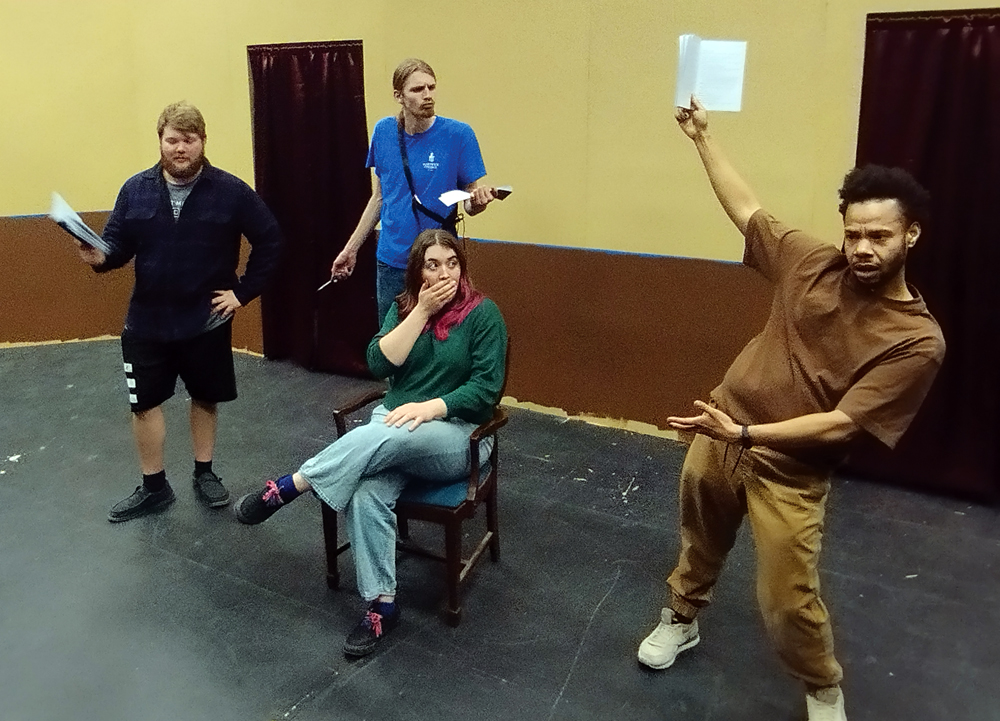
On Stage: Performing Arts at our Oneonta Campuses by Rachel Frick Cardelle
Hartwick Thespians To Perform Complete Works of Shakespeare
“If you like Shakespeare, you’ll like this show. If you hate Shakespeare, you’ll love this show!”—The Today Show
The Today Show was referring to a production of “The Complete Works of William Shakespeare (Abridged),” a play our community will be able to see performed April 10-13 at Hartwick College, directed by Marc Shaw and performed by a small but mighty group of Hartwick staff and students. I got to see a rehearsal still four weeks shy of production, and it was already thoroughly engaging to watch.
Originally created for and performed at the Edinburgh Festival Fringe in 1987, “The Complete Works” has been updated multiple times by its authors—Adam Long, Daniel Singer, and Jess Winfield—most recently in 2023. The three actors in the play promise the audience at the beginning to cover all 37 of Shakespeare’s plays in under two hours. [For the scholars in the audience, there are 37 plays that are universally accepted as written by Shakespeare. Many claim there are 38 or 39. Given possible collaborations with other playwrights and the fact that he wrote in the years between, roughly, 1580-1613, records aren’t entirely clear.]
You have reached your limit of 3 free articles
To Continue Reading
Our hard-copy and online publications cover the news of Otsego County by putting the community back into the newspaper. We are funded entirely by advertising and subscriptions. With your support, we continue to offer local, independent reporting that is not influenced by commercial or political ties.

